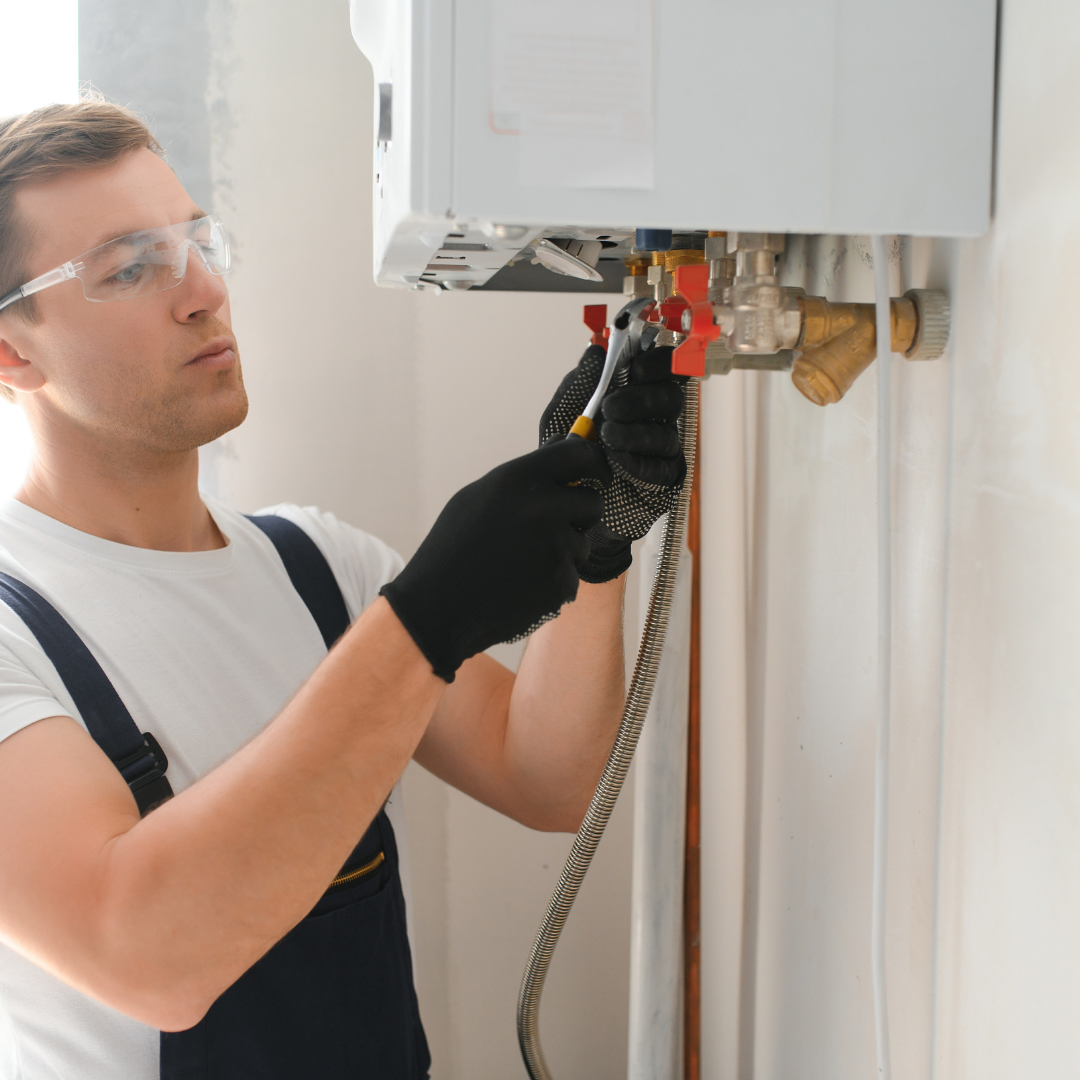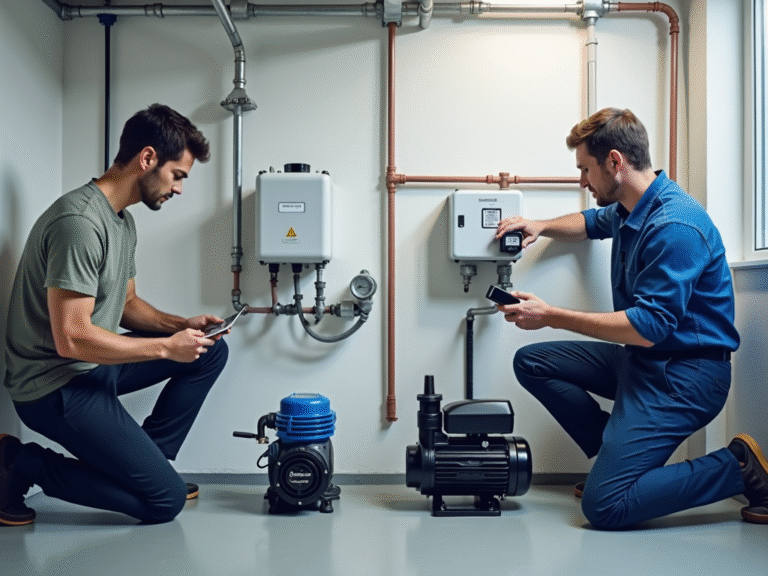Donec efficitur, ligula ut lacinia
viverra, lorem lacus.

How to Prepare Your HVAC System for Extreme Weather
Extreme weather can be a nightmare if your HVAC system isn’t ready to handle it. Whether it’s a scorching summer heatwave or a bitter winter cold snap, your home’s comfort depends on your HVAC system working at its best. But are you giving it the attention it deserves before the weather turns wild?
If you’re not sure where to start, don’t worry. Here’s a detailed guide on how to get your HVAC system in tip-top shape so that it performs flawlessly, no matter what nature throws at it.
1. Consider Professional HVAC Services
Let’s be honest-some HVAC maintenance tasks are best left to the professionals. While you can do plenty of things yourself, hiring an expert for HVAC services in Bellevue can save you time, hassle, and money in the long run. A certified HVAC technician can inspect your system from top to bottom, looking for any hidden issues that might cause trouble during extreme weather.
Why is this so important?
- They have the expertise to spot problems you might miss.
- They can perform tasks like refrigerant checks and electrical inspections, which are not DIY-friendly.
- Routine maintenance by a professional ensures your system is running efficiently, which can help reduce energy bills during extreme weather.
- You’ll have peace of mind knowing your system won’t suddenly break down when you need it most.
In addition to these benefits, by addressing potential issues early on by hiring a reliable HVAC service, you could ensure that your climate systems run efficiently, providing comfort throughout both hot and cold seasons.
2. Change or Clean Your Air Filters
This one is a no-brainer but often gets overlooked. Dirty air filters can seriously hinder your HVAC system’s performance, causing it to work harder than it should. This extra strain can lead to higher energy bills, and worse, it can cause your system to fail when the weather is at its worst.
How often should you change or clean the filters? Ideally, once every 1-3 months. If you live in a particularly dusty area or have pets, you might want to do this even more frequently. Clean air filters help ensure that air flows freely, keeping your home comfortable and your HVAC system running smoothly.
3. Inspect Your Thermostat
Is your thermostat working as it should? You’d be surprised how often HVAC issues come down to a faulty or poorly calibrated thermostat. Take a few minutes to check if your thermostat is responding correctly. Does the temperature in your home reflect the settings on the thermostat?
If you have an older, non-programmable thermostat, it might be time for an upgrade. Modern smart thermostats allow you to program heating and cooling schedules based on when you’re home and when you’re not, ensuring that your HVAC system only runs when necessary. This can significantly improve your system’s efficiency and reduce the wear and tear it experiences during extreme weather.
4. Clean Your Outdoor Unit
Your HVAC’s outdoor unit can become clogged with dirt, leaves, and other debris, especially after stormy weather. A dirty unit can reduce airflow and make your system work harder than it needs to.
Before cleaning, make sure the unit is turned off for safety. Remove any debris around the unit and use a garden hose to gently clean the fins. Avoid using high-pressure water, as this can damage the delicate parts of the system. Keeping the outdoor unit clean ensures that air circulates properly and prevents unnecessary strain on your system.
5. Seal Any Leaks in Your Ductwork
Leaky ductwork can be a silent killer for your HVAC system’s efficiency. If air is escaping through cracks and holes, your system has to work harder to heat or cool your home. This not only wastes energy but also makes it harder to keep your home comfortable during extreme weather conditions.
Take some time to inspect your ducts for any visible leaks or damage. You can also have a professional conduct a more thorough ductwork inspection. Sealing leaks with metal tape or mastic sealant can make a big difference in how well your system performs, especially when temperatures reach extreme highs or lows.
6. Clean Your Air Ducts
Keeping your air ducts clean is essential for maintaining indoor air quality and ensuring your HVAC system operates efficiently, especially during extreme weather conditions. Over time, dust, debris, and allergens can accumulate in the ductwork, restricting airflow and forcing the system to work harder. This not only reduces efficiency but can also lead to higher energy costs and poor air circulation. Scheduling professional air duct cleaning services Maple Grove, or services elsewhere, can help remove built-up contaminants, improve airflow, and keep your HVAC system running smoothly when you need it most. Regular duct maintenance contributes to a healthier home environment and prevents unnecessary strain on your heating and cooling system.
7. Clear Vents and Registers
Blocked vents or registers can also put unnecessary strain on your HVAC system. Walk around your home and ensure that no furniture, curtains, or other items are blocking the airflow. If you have adjustable vents, make sure they are fully open in rooms you use frequently. Restricted airflow can reduce your system’s efficiency and make it harder for your home to stay comfortable during extreme weather.
8. Check for Insulation Problems
Did you know that proper insulation is essential for an efficient HVAC system? Without the right insulation, your HVAC unit has to work much harder to maintain the desired temperature. This is especially true during extreme weather when the outdoor temperatures are most severe.
Check your home’s insulation, especially in the attic and around doors and windows. Poor insulation means your HVAC system is battling against the outdoor elements without much support. Improving your insulation with a Waterloo IA AC repair company, or one elsewhere, can make a world of difference in how well your HVAC system handles extreme weather.
9. Test Your System Before Extreme Weather Hits
Don’t wait until the first blistering heatwave or freezing cold snap to discover your HVAC system has issues. A great way to avoid this is by testing your system well before the extreme weather arrives. Run both the heating and cooling systems for a few hours, checking for any strange noises, uneven temperatures, or weak airflow.
If you notice anything off, do not delay. Hire professionals from experienced firms like Titan Air Conditioning Inc. to inspect and fix any problems. Small issues can quickly become major problems when your HVAC system is under stress. Therefore, addressing them early ensures efficient operation when you need it most.
In addition to testing your system, maintaining a regular maintenance schedule is often crucial. Regular checks could identify potential problems before they become serious, ensuring your HVAC system operates smoothly throughout the year.
Preparing your HVAC system for extreme weather doesn’t have to be complicated. With a mix of DIY tasks and help from professionals, you can rest easy knowing your home will stay comfortable even in the harshest conditions. Take the time now to ensure your system is ready, and you’ll save yourself stress, money, and discomfort later.



